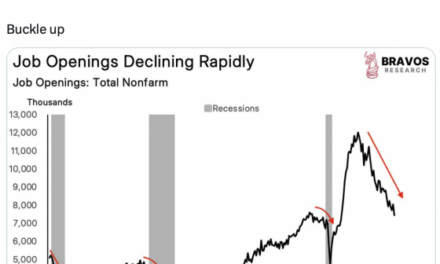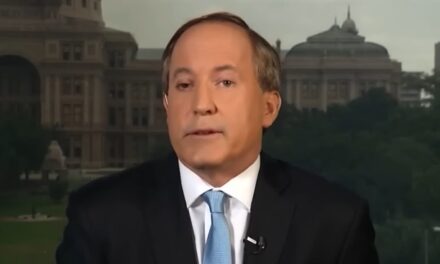We support our Publishers and Content Creators. You can view this story on their website by CLICKING HERE.
California’s zero-emission regulations cause truck shortages and rising business costs
- California’s Advanced Clean Trucks (ACT) regulation, which mandates a shift to zero-emission vehicles (ZEVs) by 2036, is causing truck shortages and increased costs for businesses in the state.
- By the 2024 model year, up to nine percent of sales in California must be ZEVs, a target that industry representatives say is currently unachievable due to technological constraints.
- The shortage of diesel trucks has been significantly reduced, impacting various industries, such as emergency roadside services, which currently lack suitable ZEV options.
- Trucking and heavy-duty vehicle industry representatives argue that the ACT regulations are forcing businesses to leave the state of California or even close up shop, as they struggle to comply with the new requirements.
- Despite evidence to the contrary, CARB representatives maintain that the state’s ACT regulations may not be the primary issue, pointing to broader national supply chain challenges and inconsistencies in communication with affected parties. However, critics assert that the unique decline in truck availability is directly linked to the ACT regulations.
The trucking and heavy-duty vehicle industry has revealed that California’s Advanced Clean Trucks (ACT) regulation, which aims to reduce tailpipe emissions, is causing truck shortages and rising business costs.
Based on California’s ACT regulation, the state plans to end traditional combustion truck sales completely in favor of zero-emission vehicles by 2036. The regulation, which was adopted by the California Air Resources Board (CARB) in 2020 and approved by the state Office of Administrative Law in March 2021, requires manufacturing companies to gradually increase the percentage of zero-emission vehicles (ZEVs) they sell on the market, such as electric or hydrogen-powered trucks and reduce the number of gas and diesel trucks.
However, this shift proves challenging for businesses and consumers alike as the technology and infrastructure required to support a fully electric trucking industry continue to develop.
“These rules are decreasing product availability, and when there’s less product available, there’s increasing costs,” said Anthony Bento, chief legal officer for the California New Car Dealers Association. “The on-the-ground reality is that California consumers and businesses are going to be paying more because there’s not an adequate supply of new product available that meets customers’ demands.” (Related: EVs are NOT zero emissions: It takes 500,000 pounds of earth material to build a single 1,000-pound battery.)
By the end of the 2024 model year, five to nine percent of California’s sales must be ZEVs, a target that industry representatives say is unachievable with current technology.
Mark Baatz, the owner of Tow Industries in Los Angeles, which supplies trucks to emergency roadside services, said: “In our industry, regardless of cost, there isn’t an electric truck that works for us at this time. That next technology hasn’t arrived for us yet.”
As a result, the number of diesel trucks available has been reduced dramatically. Last year, his company sold around 600 trucks, and next year only around 30 to 50 trucks are expected to be available. He said this will heavily impact the emergency towing industry.
Moreover, trucking and heavy-duty vehicle industry representatives stated that the rules are forcing businesses to drive out of state to purchase trucks and parts that are non-compliant, leave the state of California or close up shop altogether. They also say truck business owners are delaying upgrading their fleet to not deal with the requirements.
CARB representatives deny consequences of ACT regulations
Despite all the evidence, CARB representatives remain in denial. They say the state’s ACT regulations may not be the primary issue facing the market, pointing to a broader national downturn and ongoing supply chain issues that have persisted from previous years. They also noted that manufacturers might not have been adequately prepared to meet other emissions regulations, further contributing to the current challenges.
“Inconsistencies in communication have led dealers and fleets to believe that the ACT regulation’s requirements are leading to the product shortages in the medium- and heavy-duty space which, upon discussions with all affected parties, is not backed by the data available,” Steven Cliff, executive officer for CARB, wrote in a memo on Sept. 25. “Additionally, some vehicle upfitters producing specialty vehicles, including tow trucks, have reached maximum production capacity thresholds nationwide and cannot increase production levels, which affects the manufacturers’ ability to accept new orders.”
Cliff also noted that California zero-emission trucks have increased their price, averaging $86,512 from 2021 to 2022 while such European trucks have decreased in price by an average of $12,641 that same period.
Bento said data suggests that the magnitude of declines in available trucks are significant, with over 80 percent for Class 8 heavy-duty trucks weighing more than 33,000 pounds and the scale of these declines is unique to California. Therefore, he concluded that this cannot be attributed to national or economic factors.
“If the supply of new combustion trucks does not increase, businesses that rely on these vehicles will be left with a couple of choices: continue to operate their older, more polluting vehicles for longer or purchase vehicles from out of state that do not comply with CARB requirements,” he said during a CARB board meeting on Oct. 24. “Both options undermine our state’s environmental goals and will harm air quality.”
Read more stories like this at GreenTyranny.news.
Watch President-elect Donald Trump promising to end the outgoing Biden-Harris administration’s EV mandate below.
This video is from the GalacticStorm channel on Brighteon.com.
More related stories:
Biden and Newsom’s backroom deal to ban gas cars is a tyrannical power grab.
Sources include:

 Conservative
Conservative  Search
Search Trending
Trending Current News
Current News 





